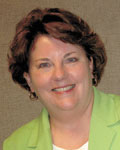December 6, 2010
Leaving Your Kids Home Alone
 By Rondi Doyle
By Rondi Doyle
Director of Community Relations
Child Abuse Council
Leaving your kids home alone is a significant milestone: it shows that your child is old enough and mature enough to behave properly and handle any mishaps. But, it’s dangerous to leave your kids alone too early.
Here is a guide to know when your child is old enough to be home alone and safety precautions you can take.
When is My Child Old Enough?
Here are some issues to consider:
Age and Maturity: If your child follows your guidelines and rules and can handle tasks with minimal supervision, she may be ready to look after herself for certain periods of time.
Circumstances: Start small, with a short errand. Consider what tasks your child will need to take care of while you are gone. Will she or he need to feed herself or himself or take care of other siblings/children?
Safety: Your neighborhood needs to impact this decision, as well as does the time of day. Additionally, if you know and trust your neighbors, they can check in with your kids.
How Do I Make Sure My Kids Stay Safe?
Develop a Safety Plan: Make sure your kids know basic safety rules – don’t answer the door or let strangers in the house, friends/parties are not allowed in your absence, etc. Create a safety plan for your family, make sure your children know what to do in an emergency, and post the plan in your kitchen or another obvious place. Make a list of important/emergency contact numbers and ensure that your children can contact you at all times.
Check-In: Call your kids every hour or so (especially the first few times) to check in. Ask a neighbor or nearby family member to stop by. Also, if you have a smart phone, consider downloading an app that will help you keep track of your kids.
Don’t Overdo It: Your kids need your presence and guidance. Keep your kids plugged in to after school activities, community organizations, and family members to keep them from spending too much time unsupervised.
This information was provided by National Fatherhood Initiative. For more guidelines and information, visit www.childwelfare.gov or www.fatherhood.org For more information about the Child Abuse Council’s prevention and education programs, you can visit us at www.childabuseqc.org or contact me at rondid@childabuseqc.org.
Rondi Doyle is Director of Community Relations at the Child Abuse Council. She can be reached at 309-786-1466 or www.childabuseqc.org
Filed Under: Health & Wellness
Tags: Child Abuse Council, Community Organizations, Community Relations, Contact Numbers, Emergency Contact, Family Member, Family Members, Maturity, Milestone, Minimal Supervision, Mishaps, Neighbor, Neighbors, Periods, Safety Plan, Safety Precautions, Safety Rules, Siblings, Smart Phone, Time Of Day
Trackback URL: https://www.50pluslife.com/2010/12/06/leaving-your-kids-home-alone/trackback/


